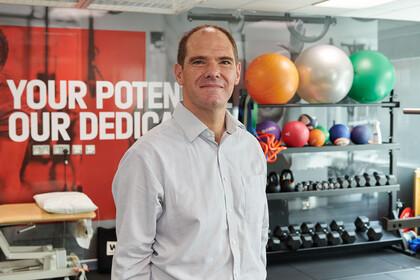
Why science needs lived experiences of mental health challenges
Lived experience in mental health research is crucial for finding effective solutions and advancing science. Lived Experience Consultants, Grace Gatera and Shuranjeet Singh, explain what their expertise brings to research and how Wellcome is embedding it in our Mental Health programme.

Christopher Ratcliffe / Wellcome.
The term 'lived experience' has become more popular across various fields over the last decade.
But in mental health, it’s not a new concept.
The approach builds on the work of survivor and service-user activists. These groups have influenced important legislations, policies and practices by advocating for lived experience expertise to be included in decision making.
This shows what can happen if we embed lived experience expertise. It can shape mental health science through first-hand knowledge and insights.
Wellcome’s vision is a world in which no one is held back by mental health problems. We can’t achieve this without including the expertise of those who have experienced these problems. The importance of lived experience in mental health can't be overstated.
By collaborating with lived experience experts in all our work, we can advance mental health science together.
What is lived experience in mental health?
Lived experience is unique, person-centred knowledge, insight and expertise. It brings important and often overlooked perspectives to the field of mental health.
In some cases, that might include experiences of clinical services, but not always. This can make our expertise distinct from certain discussions around patient experiences.
Lived experience experts or advisors may work within research or clinical settings. We bring a first-hand understanding of mental health problems and knowledge of collective and systemic issues and challenges that people face. This includes understanding how these issues impact people, the challenges with current interventions, and priorities for improving them.
This is critical for finding ways to address mental health challenges.
Sometimes referred to as ‘experts by experience’ or ‘peer specialists’, we offer unique perspectives. This helps identify gaps in mental health research, as well as potential solutions.
This invaluable insight has the power to improve mental health science by:
- shaping research
- informing clinical practice
- promoting inclusion
- improving outcomes
That’s why involving lived experience in research is more than good practice – it’s essential in shaping the future of mental health.
Why is lived experience important for mental health research?
Lived experience expertise improves research.
It brings a deep understanding that goes beyond academic knowledge. It’s as important as other forms of insight, such as research and clinical expertise.
Working together with lived experience experts can take various forms, from setting research priorities to conducting studies and sharing findings. It brings the real world to research, helping to shape questions and analysis based on people’s experiences and expertise. This leads to more reliable, meaningful and impactful results.
By collaborating with lived experience experts, we can make research more inclusive and reflective. Those benefits can then extend to the interventions, policies and advocacy that follow. This is what mental health science should look like.
How are we embedding lived experience in mental health research at Wellcome?
The lived experience team includes advisors from around the world. Together, we help work to:
- shape the thinking, direction and decision-making of our Mental Health programme
- design and deliver funding opportunities that advance the mental health strategy
- fund research that includes lived experience expertise of people affected by mental health problems
- find and promote the best models for embedding lived experience expertise in research
- ensure lived experience experts inform our policy and advocacy work
This article was first published on 17 March 2021.



